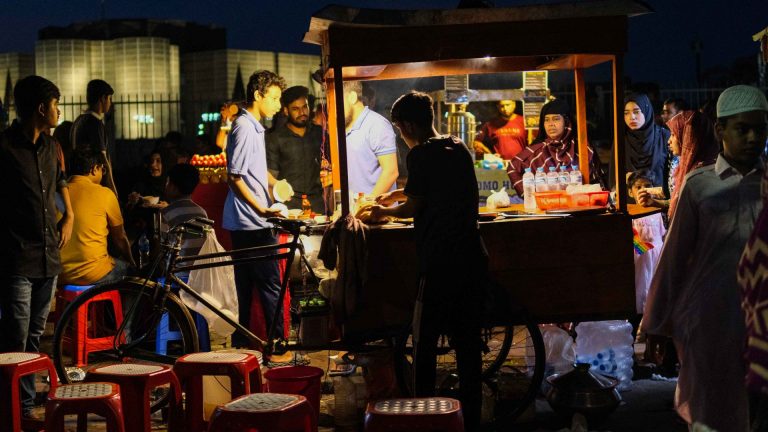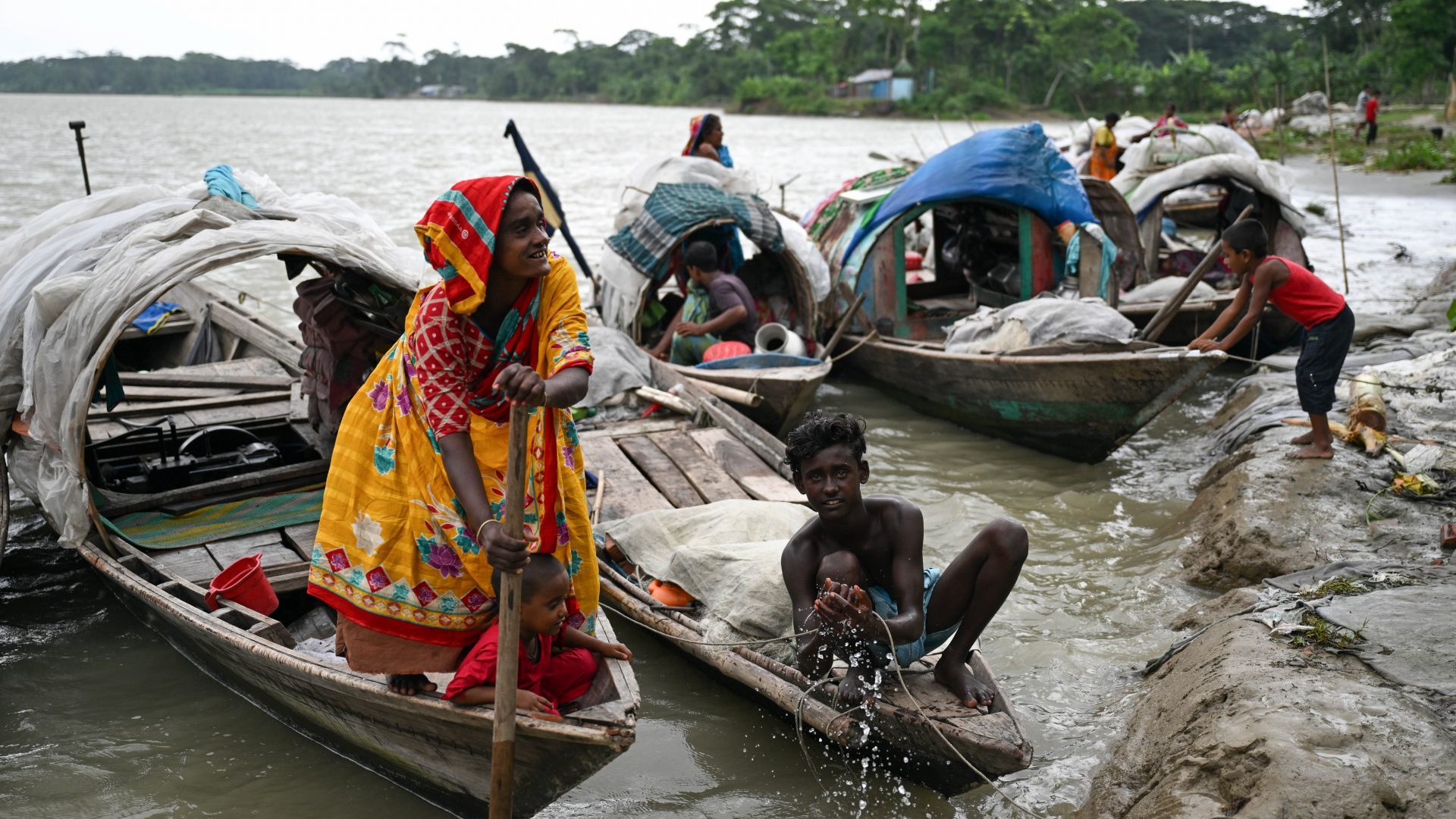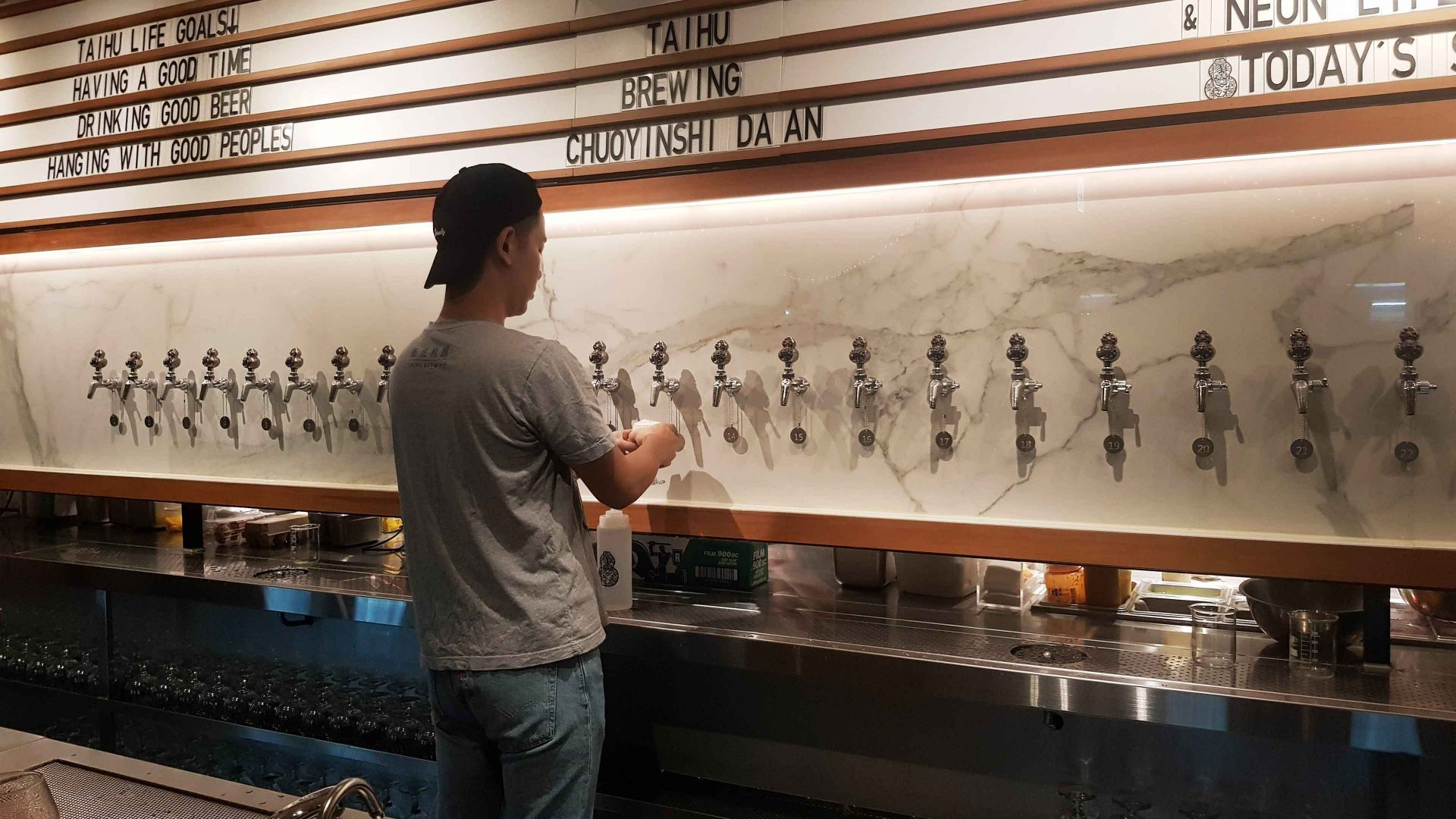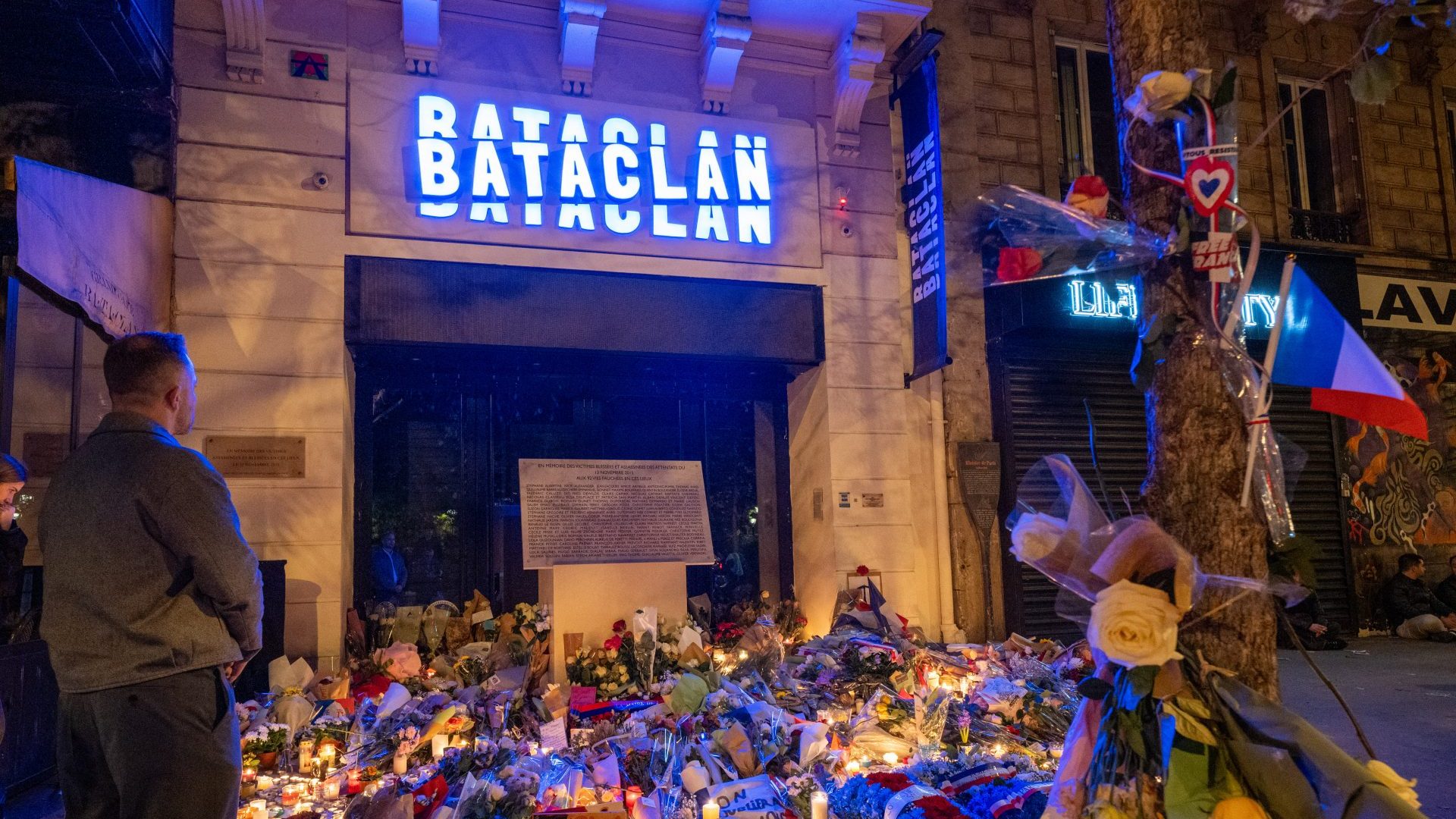In south-central Bangladesh, just 24km from Barishal, is the Laharhat ferry terminal. A Manta community, consisting of 174 families altogether, lives on their boats.
The Manta community are Bangladesh’s “river gypsies”, who live on rivers and survive by fishing, and there are around 2,000 who live around Barishal, along with other groups across the south-western coastal areas of Bhola and Patuakhali.
Jashim Shardar, the community leader, had invited us onboard for dinner. We had rice, a fish curry, and a lentil curry, the same meal the Manta have for breakfast and dinner, all cooked using water taken from the same polluted river in which they fish, bathe and clean their clothes. Their entire lives depend on the water.
“Laharhat Ferry Terminal, Laharhat – this is the only address we know, this is the address printed on all of our national identity cards,” says Shardar, whose family has been the community leader for generations.
In a 2022 report, the World Bank predicted that in the next 30 years, 13.3 million people in Bangladesh may become internally displaced as a result of water scarcity, agriculture, and rising sea levels.
Bangladesh’s position in the Ganges-Brahmaputra delta, and its low-lying terrain, make it extremely vulnerable to rising sea levels. Up to 17% of the country is at risk.
Living in a submerged world is tough. Many of the Manta people live below the poverty line, overfishing threatens their food supply, and they are dangerously exposed to cyclones and floods. “During cyclones, we need to find shelter in smaller streams, to not be capsized by storm surges,” says Shardar.
When the floods come, entire families have been lost. “We cannot locate the dead bodies for days,” he says. “Later on, when the water recedes, we look for them.”
Though the government orders them to seek shelter on land, many people cannot afford to leave their boats behind. “If we are to die, it has to be on the boat; and if we survive, it will have to be with the boat,” says Shardar.
For the Laharhat community, the only affordable hospital is the government hospital miles away in Barishal town. One toilet stands onshore – too far for most to access, especially at night, meaning newborn babies, small children and women are forced to live extremely unhygienic lives. Girls and women have no access to menstrual hygiene products and are at high risk of reproductive health issues.
Extreme poverty means that girls are susceptible to being married off at a young age. Early marriage and polygamy are common within this community, even though the legal age for women to get married is 18.
The Mantas are largely illiterate. Only a few know how to count or calculate fish prices – skills they picked up out of necessity, buying and selling in markets.
Most of the boats house a small solar panel, gifted by NGOs or bought secondhand, often to power a single lightbulb; other than that, their lives are lived in the dark.
Government officials like Iqbal Hasan want to improve the lives of Manta children. He says all primary schools are instructed to admit Manta children without discrimination – but the reality is different.
Suggested Reading

The Bangladeshi food that came down from the hills
“They want to have separate lives on land and demand separate schools for their children, but we want to include them in the community and for them to lead normal lives, a request they keep denying,” says Hasan.
The Mantas say they rejected the government’s help because the homes on offer were too far inland, cutting them off from their livelihoods.
Leading entire lives and raising families in a boat on average only 11 metres long and 2.5 metres wide, their lives are a testament to a painful existence.
“This is not living, this is not a life,” says Lokman, a 20-year-old Manta fisherman. “Whatever we earn, the spending always exceeds it, and there’s no escape from it.”
Rasheek Tabassum Mujib is a digital investigation journalist at AFP, Dhaka bureau. A former healthcare and education reporter for the Cape Cod Times under USA Today Network, Rasheek has an MS in Journalism from Boston University



